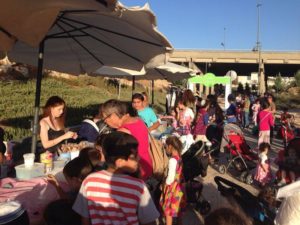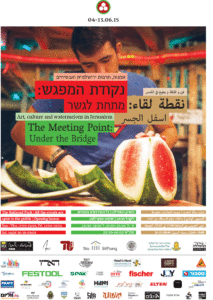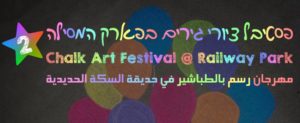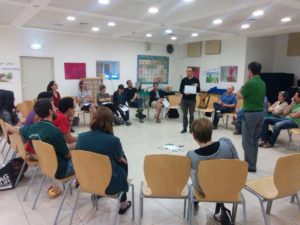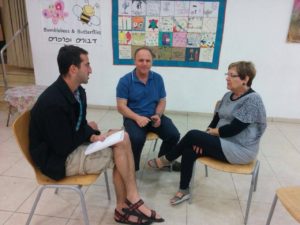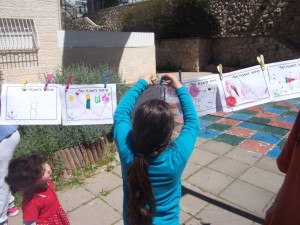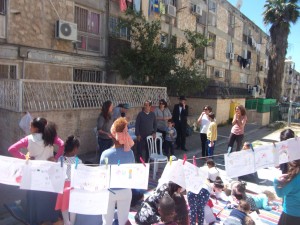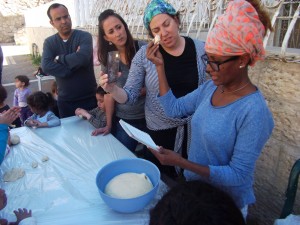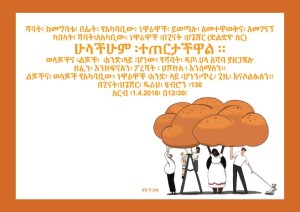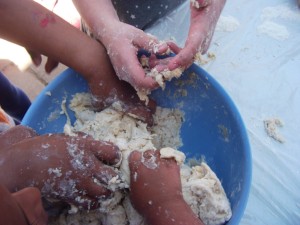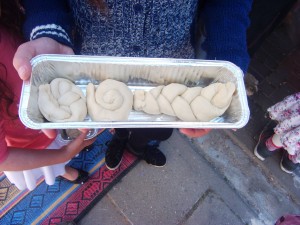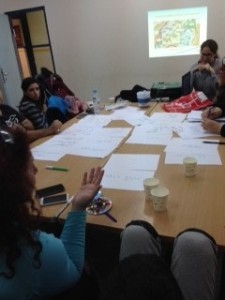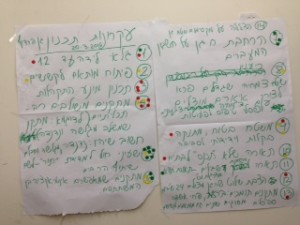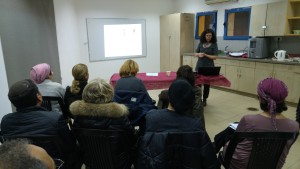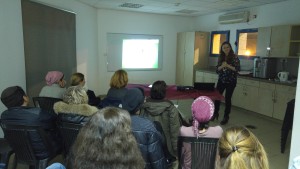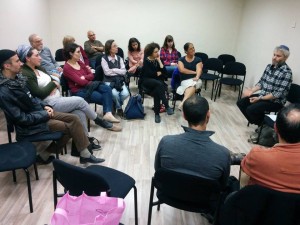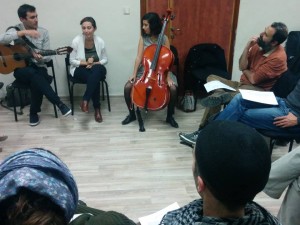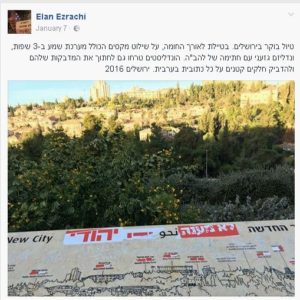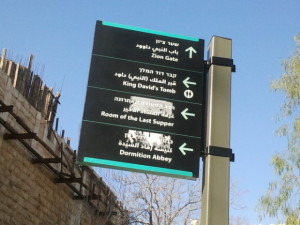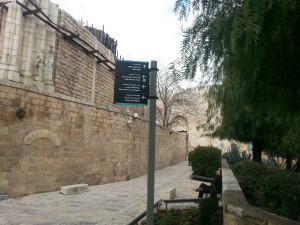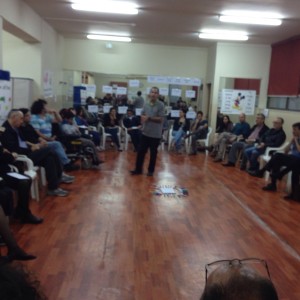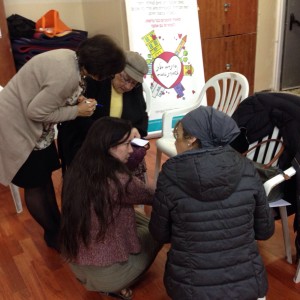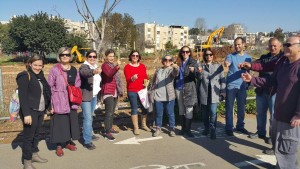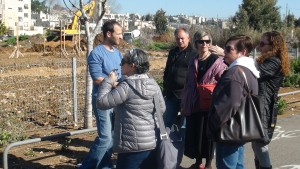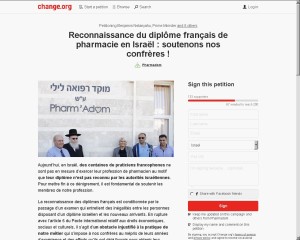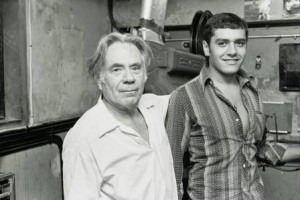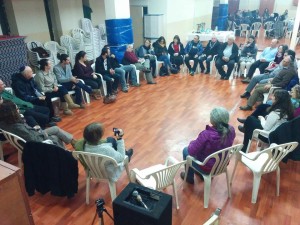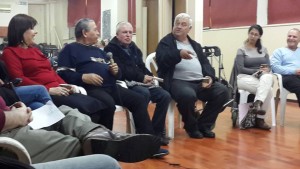Continuing to Develop Jerusalem Railway Park
We began our involvement in resident initiatives along the Jerusalem Railway Park more than two years ago, together with the Baka’a, Ginot Ha’Ir and Gonenim Community Councils and a number of local organizations and active residents. This was very soon after the entire length of the Park, which runs from the First Train Station near the city center south toward Malcha and out of the city, had opened.
Since then, the Railway Park has become one of the liveliest centers of activity in Jerusalem. Each month more initiatives are developed to enhance life in, on and along the park. Some examples include: MusiKatamon:
Meeting Point: Under the Bridge (Meaning, under the overpass that leads from the Katamonim neighborhood to Beit Safafa.) Led by the Muslala Group, but included a broad range of local institutions:
Chalk Festival, also in 2015:
Reading Station, an old bus stop that had been re-configured with bookshelves. People drop off and take books freely. (The video is in Hebrew)
BaRakevet (both “At the train” and “Train Bar”) Community Cafe
We continue to accompany the leaders of these initiatives, many of which are resident-led. On April 5, we held a meeting for all those interested in developing new, and refining older, ideas and initiatives. There were some 20 active residents there, some who had initiated the idea of the park, some who are operating social initiatives in the park, some were residents who live along the park, and others were youth from the Telem Scouts movement, from all over the city.
At first we heard some updates of existing initiatives – BaRakavet, Reading Station, local treasure chests (places where people drop off unwanted items and pick up stuff for free). We also discussed several new initiatives – meetings with senior citizens, corner for petting and adopting pets, musical Kabbalat Shabbat at the Reading Station, jam sessions for Jews and Arabs, juggling and music at the Reading Station, a second-hand swap, and more.
Good luck to all the initiatives! We’ll keep you posted here on their development…

